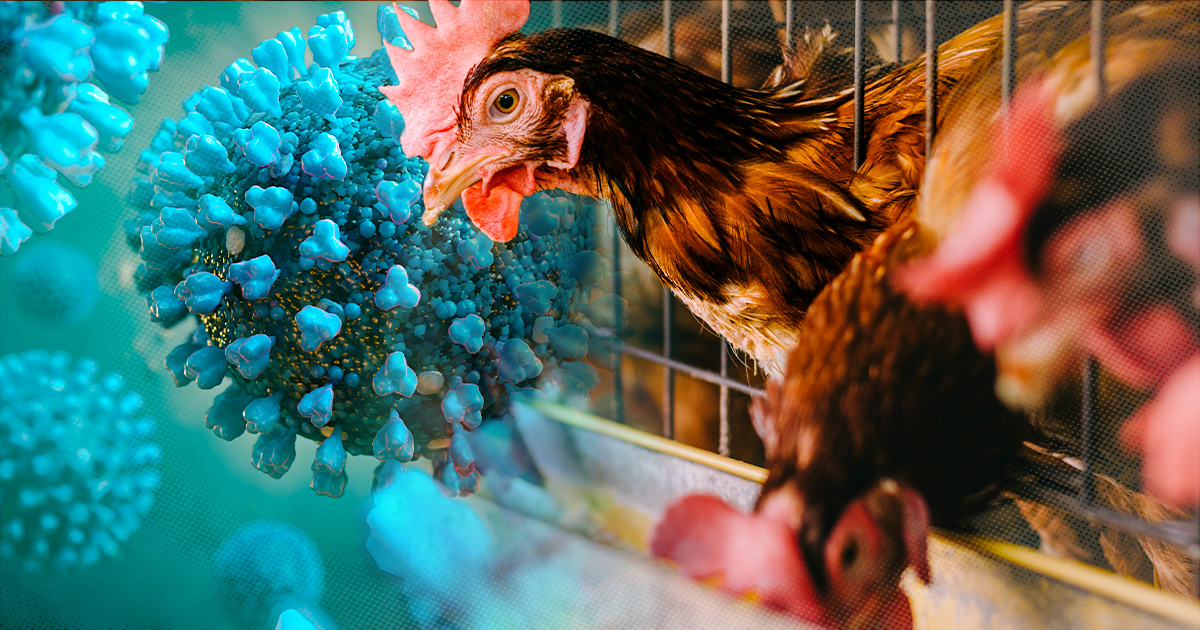Impact of Avian Influenza on Poultry and Humans

Avian influenza, commonly known as bird flu, poses significant threats to both the poultry industry and human health. Its impact on poultry can be devastating, leading to widespread economic losses and disruption of the food supply chain. Meanwhile, human infection with avian influenza viruses can cause severe respiratory illness and even death.
Economic and Health Impacts on the Poultry Industry
Outbreaks of avian influenza can cause catastrophic economic losses for the poultry industry. Infected birds must be culled to prevent the spread of the virus, leading to a significant reduction in poultry production. This can result in shortages of poultry products, price increases, and disruption of the food supply chain. In addition, trade restrictions and quarantine measures imposed by countries to prevent the spread of the virus can further exacerbate the economic impact.
Potential Risks and Consequences of Avian Influenza Infection in Humans
While avian influenza viruses primarily infect birds, they can also occasionally infect humans. Human infection with avian influenza viruses can range from mild to severe, and in some cases, can be fatal. Symptoms of human avian influenza infection can include fever, cough, sore throat, muscle aches, and fatigue. In severe cases, the virus can cause pneumonia, respiratory failure, and even death.
Surveillance and Control of Avian Influenza

Avian influenza, also known as bird flu, is a highly contagious viral disease that can affect both domestic and wild birds. To prevent and control outbreaks, surveillance and monitoring are crucial for early detection and response.
Surveillance involves regular monitoring of poultry flocks and wild bird populations for signs of avian influenza infection. This includes observing for clinical signs such as respiratory distress, coughing, sneezing, and decreased egg production, as well as conducting laboratory testing to confirm the presence of the virus.
Diagnostic Methods
Various diagnostic methods are used to confirm avian influenza infections, including:
- Virus isolation: Isolating the virus from infected birds or their tissues.
- Antigen detection tests: Detecting viral antigens in samples using techniques like ELISA or immunohistochemistry.
- Molecular diagnostic tests: Identifying the virus’s genetic material using methods like PCR or RT-PCR.
Control and Eradication Strategies, Avian influenza
When an avian influenza outbreak occurs, prompt control and eradication measures are essential to prevent its spread. These strategies include:
- Quarantine: Restricting the movement of infected birds and their contacts to prevent the spread of the virus.
- Culling: Humanely killing infected birds and their close contacts to eliminate the source of infection.
- Vaccination: Using vaccines to protect susceptible birds and reduce the severity of outbreaks.
Avian influenza is a nasty virus that can make your chickens dance like Michael Jackson. But don’t worry, we have Allan Lichtman on our side. This guy is like a fortune teller for elections, but instead of predicting who will win, he’s helping us understand how avian influenza spreads.
So, next time you see your chickens doing the moonwalk, remember Allan Lichtman and his incredible work in the fight against this feathery foe.
Guys, you know about avian influenza, right? It’s like a super contagious virus that can kill birds. But get this: there was this weird thing that happened in Philadelphia a while back. It was July, and it started snowing at the airport! I mean, who would’ve thought?
July snowfall in Philadelphia airport , seriously? And guess what? Some people think it might have been related to the avian influenza outbreak. Apparently, the virus can affect the weather or something. Crazy, right?
But hey, at least we can say we’ve seen July snowfall in Philadelphia. It’s not every day you get to experience that.